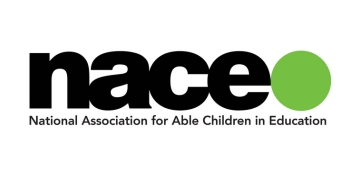Our teachers are seriously overworked even without catering for special needs diets, says Tom Burkard
Earlier this year, Warwickshire Education Authority published a radical new document that could go a long way towards resolving the crisis of provision for pupils with special educational needs and disabilities. They announced that poor readers would no longer be assessed for dyslexia because “the techniques used to teach reading to children diagnosed with dyslexia are the same as those used to teach any other struggling reader”.
They could have added that the techniques are the same as those that work best with all children – struggling readers just need a lot more reinforcement. The 2006 Rose Review considered 10 UK schools that had succeeded in teaching virtually all of their pupils to read with synthetic phonics programmes, and found that children who had difficulty learning basic letter-sound correspondences got additional help before they fell behind. Rather than considering the pupil’s putative learning style (or disability), good teaching focuses relentlessly on the skill that must be learned. It really is that simple – once these children had cracked the English spelling code, they were able to make good progress despite their initial disadvantage.
None of this should be surprising. With admirable restraint, Warwickshire pointed out: “It is widely accepted that the diagnosis of dyslexia is scientifically questionable and can be misleading.” We’ve known this for a long time – in 1974, the eminent child psychologist Sir Michael Rutter found that “ … the features said to characterise ‘dyslexia’ do not cluster together as they should if there were a single ‘dyslexic’ syndrome”.
Teachers are seriously overworked even without catering for special educational diets
More recently, a report by the British Psychological Society concluded that “dyslexia has for many years been a short-hand for marked difficulty with the alphabetic script. As such, it has generated a substantial body of empirical research leading to theoretical debate about the sources and explanations of these difficulties. However, meaningful resolutions about conceptualisation and identification across all spheres of involvement have not been reached.”
The report outlines 10 theoretical models of dyslexia, cautioning that it is important to consider the extent to which these should be regarded as alternative accounts of a unitary construct of “dyslexia”, as opposed to being regarded as accounts of different types of dyslexia.
With this level of confusion, perhaps Lord Watson, Labour’s education spokesman in the House of Lords, can be excused for his outburst in October: “Warwickshire county council’s guidance to parents ignores the science and refuses to recognise that dyslexia is a medical condition … One wonders if perhaps they have also advised their residents that the Earth is actually flat and there’s no such thing as global warming.”
When people (even lords) start bandying about “the science”, it should be obvious that they don’t understand how science works. Although real scientists often exaggerate their degree of certainty – especially when applying for grants – most understand that all scientific knowledge is provisional, and the first duty of scientists is to attempt to falsify their theories.
However, Lord Watson tapped into a very considerable body of support from the dyslexia industry and the individuals it purports to help. Illiteracy is intensely shameful, and a diagnosis of dyslexia is a child’s get-out-of-jail-free card. They get attached to their diagnosis, rather like the Stockholm syndrome. Popular books like The Gift of Dyslexia don’t help matters. As one of my more perceptive pupils quipped: “If dyslexia is a gift, they can have it back.”
None of this is to question the motives of the British Dyslexia Association or any of the other specialists in this discipline; we can be sure they really do want to help vulnerable children. However, our teachers are seriously overworked even without catering for special educational diets.
Sadly, Lord Watson’s intervention had the desired effect – Warwickshire has been forced to withdraw their guidance. However, he’s probably too late to make much difference – according to a recent report, a third of England’s 54 local authorities have no dyslexia specialists. I’m sure that Warwickshire’s education psychology department isn’t the only one to have a better grasp of “the science” than Lord Watson.








The ‘dyslexia industry’ should perhaps be balanced by the ‘synthetic phonics industry’: those publishers who’ve profited from the government’s promotion of synthetic phonics.
The evidence, including evidence cited by schools minister Nick Gibb, finds that any method of phonics teaching, synthetic or analytic, is effective as long as it’s systematic. And it’s most effective when accompanied by ‘the equal, and eventually greater, importance of developing language comprehension’ (Rose, 2006).
Arguments around whether dyslexia exists have been around for ages (eg, ‘Dyslexia: complex medical condition, or myth?’, Daily Telegraph, 13 Sept 2007).
Whether labelled dyslexia or not, there’s no doubt some children find reading difficult. Many will be helped by catch-up lessons including phonics; others will need assistive technology. Both of these have to be paid for. The cry ‘Dyslexia isn’t proven’ could be an excuse not to provide help to struggling readers.
This written answer by schools minister Lord Agnew, dated 29 October 2018, acts as a reminder to Warwickshire of its legal duties:
”The Equality Act 2010 Guidance’ on matters to be taken into account in determining questions relating to the definition of disability, states that a disability can arise from a range of impairments that includes developmental disorders such as dyslexia… Some children and young people with disabilities have special educational needs, in which case the Children and Families Act (2014) also applies. Both these acts impose duties on a range of bodies, including local authorities.’
Janet–you obviously feel strongly about the subject, very much as I do. However, you’ve talked around the point of my article. Whatever Lord Agnew and the Equality Act may state, there is no agreed definition of dyslexia, nor any agreement on how teaching for ‘dyslexics’ should be differentiated from the teaching of other children who have difficulty mastering an alphabetic code.
No one is arguing that struggling readers shouldn’t get additional help–indeed, one of the main virtues of synthetic phonics is that children who have difficulty mastering basic phonological skills are identified in the first weeks of school and get additional help before they fall behind . Waiting for a diagnosis of ‘dyslexia’ exacerbates the problem of these children.
Children of normal intelligence who are experiencing difficulty in learning to read should be examined to see if there are impediments to hearing or vision….often is not done, or the testing is not thorough. Also, the teacher should know whether the child is left or right-handed….if the teacher is unaware, she may cause confusion for the child, especially if there are thirty of more children in the class. Often children ‘diagnosed’ as dyslexique are found to be cross-lateral…..this is not a ’cause’ of dyslexia’, but may be the result of poor teaching by an untrained or unsympathetic , or simply overworked teacher. Dyslexia, as such is only a description, and an unnecessary diagnosis.